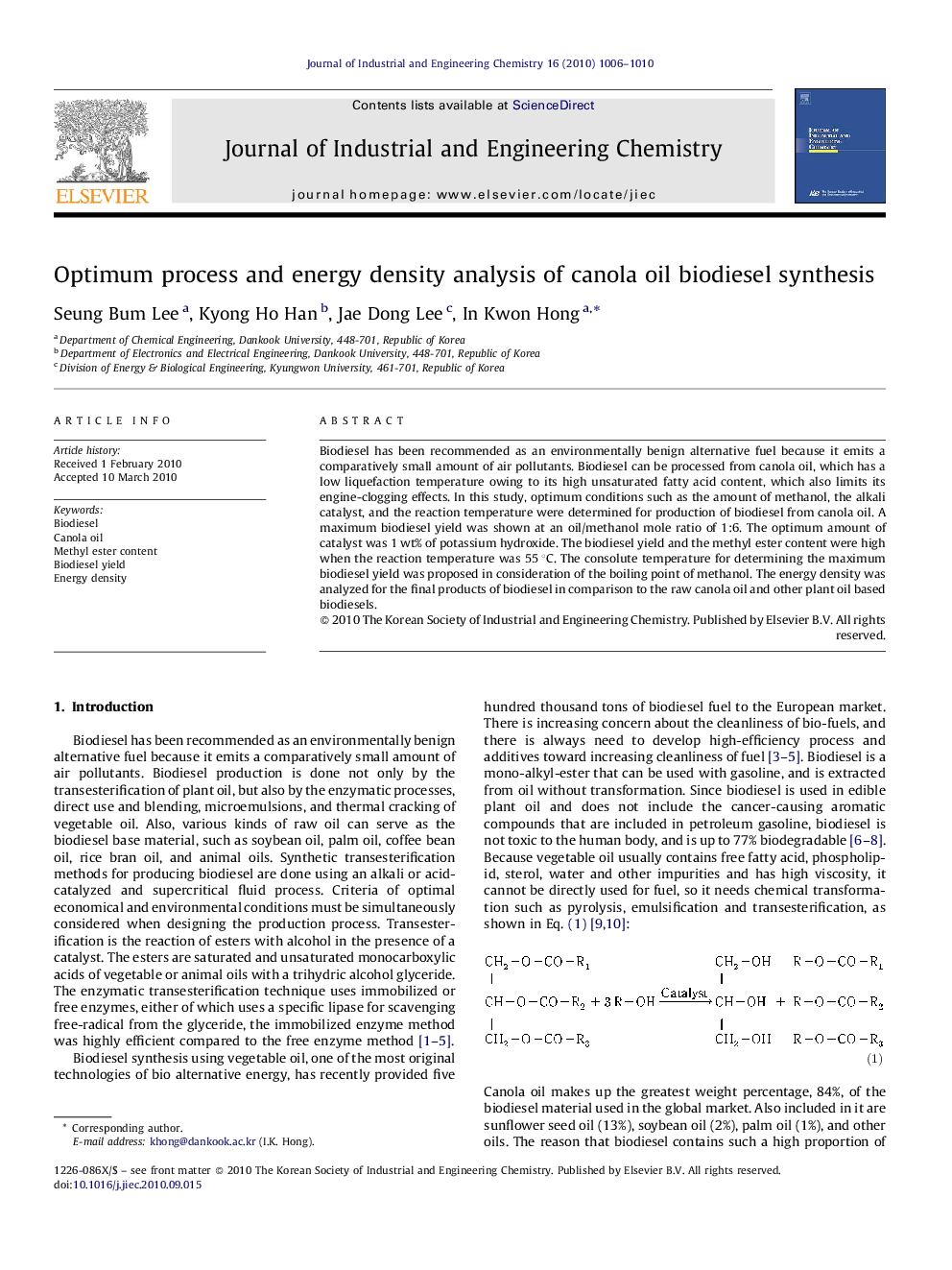| Article ID | Journal | Published Year | Pages | File Type |
|---|---|---|---|---|
| 229197 | Journal of Industrial and Engineering Chemistry | 2010 | 5 Pages |
Biodiesel has been recommended as an environmentally benign alternative fuel because it emits a comparatively small amount of air pollutants. Biodiesel can be processed from canola oil, which has a low liquefaction temperature owing to its high unsaturated fatty acid content, which also limits its engine-clogging effects. In this study, optimum conditions such as the amount of methanol, the alkali catalyst, and the reaction temperature were determined for production of biodiesel from canola oil. A maximum biodiesel yield was shown at an oil/methanol mole ratio of 1:6. The optimum amount of catalyst was 1 wt% of potassium hydroxide. The biodiesel yield and the methyl ester content were high when the reaction temperature was 55 °C. The consolute temperature for determining the maximum biodiesel yield was proposed in consideration of the boiling point of methanol. The energy density was analyzed for the final products of biodiesel in comparison to the raw canola oil and other plant oil based biodiesels.
